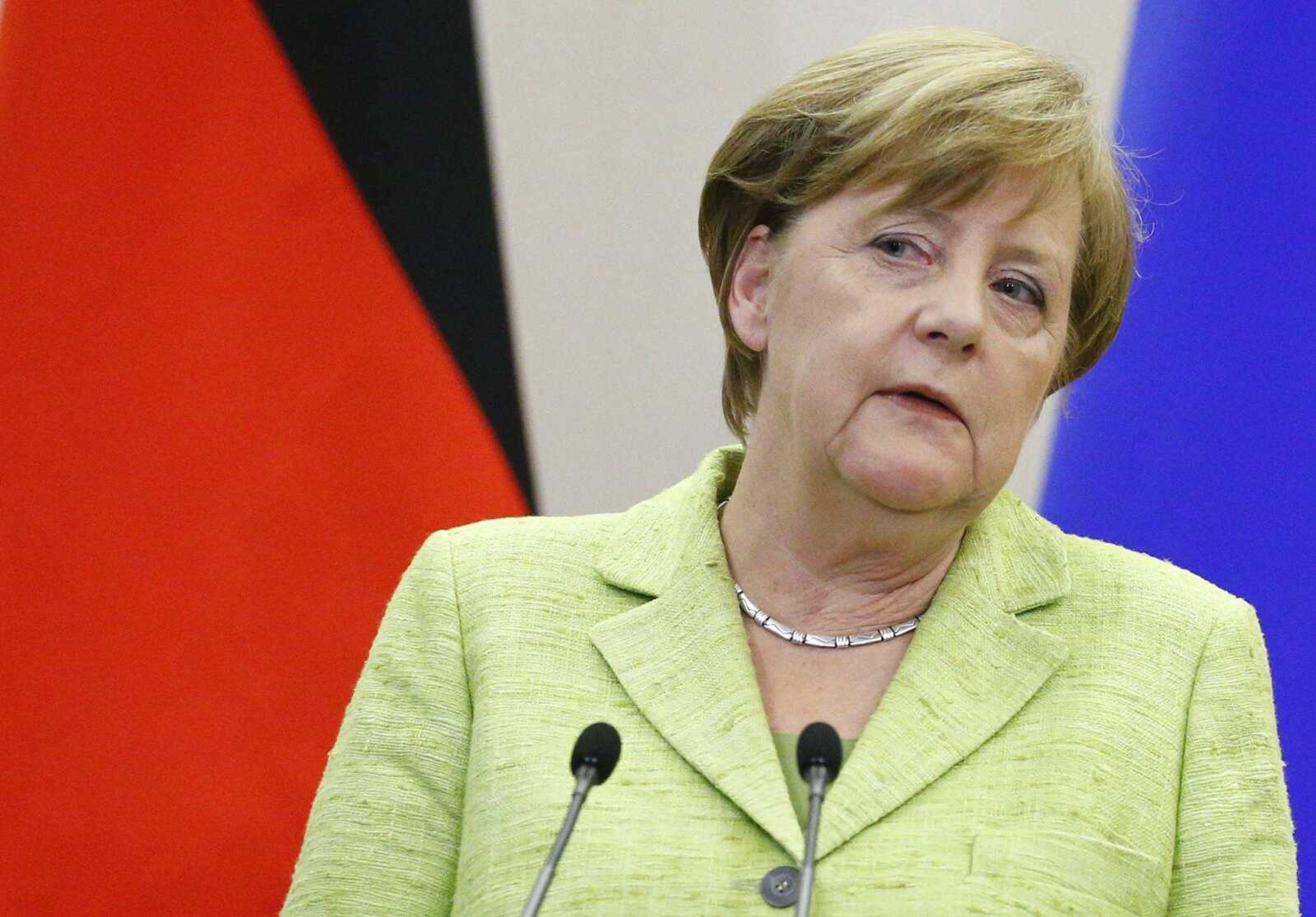Putin, Merkel spar in Russia over election meddling
MOSCOW -- During a tense appearance with German Chancellor Angela Merkel, Russian President Vladimir Putin denied Tuesday that Moscow ever interferes in elections in other countries. Speaking during a joint news conference following talks at his Black Sea residence, Putin said accusations of meddling in the 2016 U.S. presidential election were "simply rumors" being used as part of the political fight in Washington. He also denied interfering in European elections...
MOSCOW -- During a tense appearance with German Chancellor Angela Merkel, Russian President Vladimir Putin denied Tuesday that Moscow ever interferes in elections in other countries.
Speaking during a joint news conference following talks at his Black Sea residence, Putin said accusations of meddling in the 2016 U.S. presidential election were "simply rumors" being used as part of the political fight in Washington. He also denied interfering in European elections.
U.S. intelligence agencies say they have definitive evidence Russia was behind the hacking of Democratic email accounts, with the aim of benefiting Donald Trump's campaign and harming his Democratic opponent, Hillary Clinton.
Merkel said she was confident Germany can weather any disinformation campaign targeting Germany's upcoming election.
Asked about the threat during the news conference, she cited two recent incidents of what she described as "gross misinformation."
In one instance, Russian state media and the foreign minister claimed a 13-year-old girl of Russian origin had been kidnapped and raped by asylum-seekers in Berlin, and German authorities were covering up the case.
Police later determined the girl had made up the kidnapping, though a man in his 20s was charged with sexual abuse of a minor because she was below the age of consent.
Merkel said Germany would take "decisive measures" if it believed there was foreign meddling in the election, adding it was well-known "hybrid warfare plays a role in Russia's military doctrine."
Merkel's visit to Sochi was her first trip to Russia in two years, as relations between the two countries remain strained in large part over the unresolved conflict in eastern Ukraine.
Merkel has been a staunch supporter of the sanctions imposed by the European Union on Russia over its annexation of Crimea and support for the rebels fighting government troops in eastern Ukraine.
Merkel and Putin last met in Germany in October for talks aimed at reviving the stalled peace process. The peace deal brokered by Germany and France in 2015 has helped reduce the scale of the fighting, but violence has continued and attempts to reach a political settlement have failed.
Merkel and Putin heatedly disagreed Tuesday on the cause of the conflict. Both, however, confirmed their support for the peace agreement negotiated in Minsk, Belarus.
Putin's spokesman, Dmitry Peskov, said the two leaders devoted much of their time to Ukraine.
Merkel also said she raised the issue of gays in Chechnya, following reports that gay men have been detained and tortured in the predominantly Muslim republic in southern Russia.
"I asked President Putin to use his influence to protect these minority rights," Merkel said.
Russian political figures welcomed Merkel's decision to visit.
"In Sochi, neither Putin nor Merkel stepped back -- and they couldn't step back -- from their positions," prominent lawmaker Alexei Pushkov wrote on Twitter. "The very fact of their talks is progress after such a long break."
Connect with the Southeast Missourian Newsroom:
For corrections to this story or other insights for the editor, click here. To submit a letter to the editor, click here. To learn about the Southeast Missourian’s AI Policy, click here.









